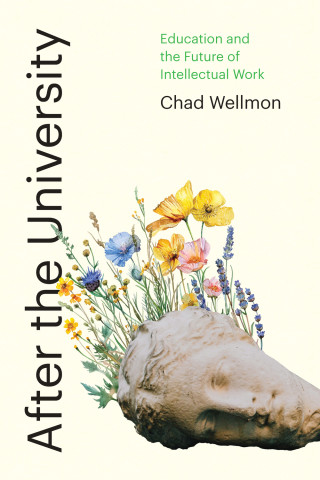
Reviews
... enriching study of previously neglected sources of epistemological transformation during the Enlightenment ear. Matytsin's work uncovers a dialectical pathway in which interchanges between skeptics and their opponents formed a new conception of reason, sufficiently modest to have relinquished metaphysics, but sufficiently bold to motivate the encyclopedists' expansive ambitions, and to play a formative role in establishing the modern disciplinary structure of knowledge.
The Specter of Skepticism in the Age of Enlightenment is an admirable exercise in intellectual history, free of the assumption that the Enlightenment has, by definition, to be shown to be the origins of the modern secular liberal world.
An ambitious and excellent study, The Specter of Skepticism in the Age of Enlightenment is an important reminder that every movement in the history of ideas or philosophy needs to be understood in terms of who is debating with it, and why.
Elegantly written and broadly informed, this sophisticated study of 18th-century efforts to secure "reason" against the onslaught of "doubt" will be essential reading for anyone interested in the European Enlightenment and its aftermath. With insight and erudition, Matytsin explores an essential context for understanding 18th-century thought—the persistent specter of skepticism—showing us that the so-called "Age of Reason" was also a critical and creative "Age of Doubt."
While we reflexively apply Kant’s adage, "dare to know," to the Enlightenment, Anton Matytsin argues, in this brilliant and recondite book, that eighteenth-century philosophy is better understood as a response to the opposite injunction: the skeptical call "not to know," and to doubt all knowledge. Faced with the prospect of general uncertainty, Enlightenment philosophers devised new arguments and probabilistic methods for grounding knowledge. This book will be required reading for anyone grappling with questions about epistemology in the so-called Age of Reason.
Book Details
Acknowledgements
Introduction: The "Age of Reason" and the Specter of Skepticism
Part 1: The Spectrum of Anti-Skepticism
Chapter 1: The Walking Ignorant: The Skeptical "Epidemic" in the Eighteenth
Acknowledgements
Introduction: The "Age of Reason" and the Specter of Skepticism
Part 1: The Spectrum of Anti-Skepticism
Chapter 1: The Walking Ignorant: The Skeptical "Epidemic" in the Eighteenth Century
Chapter 2: Pierre Bayle—Bete Noire and the Elusive Skeptic
Chapter 3: The Specter of Bayle Returns to Haunt France
Chapter 4: Secret Skepticism: Huet’s Fideistic Fumbles
Chapter 5: A New Hope: The Critics of Pyrrhonism Strike Back
Chapter 6: The Berlin Compromise: Mitigated Skepticism and Probability
Part II: Disciplining Doubt
Chapter 7: Matter over mind: Dualism, Materialism, and Skepticism in Eighteenth-Century Epistemology
Chapter 8: A Matter of Debate: Conceptions of Material Substance in the "Scientific Revolution"
Chapter 9: War of the Worlds: Cartesian Vortices and Newtonian Gravitation in Eighteenth-Century Astronomy
Chapter 10: Historical Pyrrhonism and its Discontents
Conclusion
Bibliography
Notes
Index






